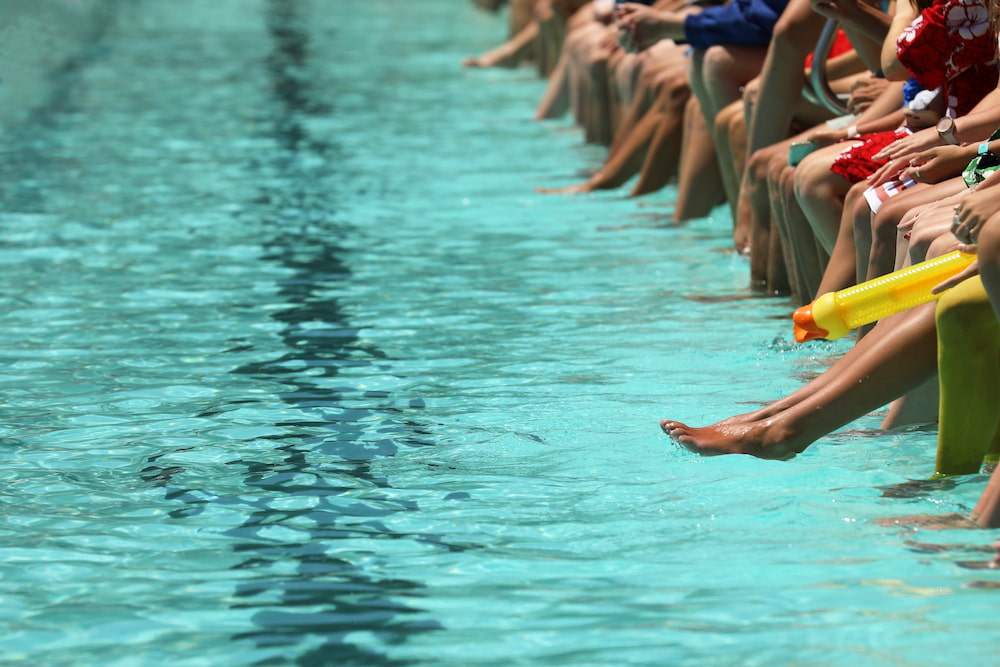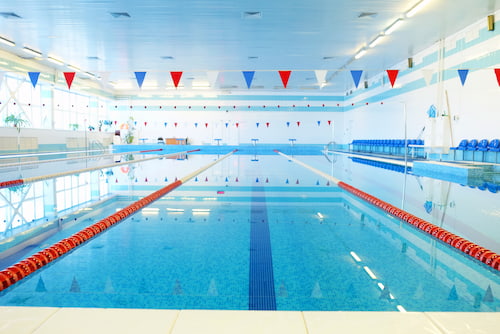8 Items You Should Never Take to an Open Swim

Public pools are a fabulous place to relax, have quality time with your family or friends, and exercise. However, swimming in pools comes with a certain amount of responsibility for maintaining hygiene and safety. Every visitor needs to abide by strict rules of behavior and pay attention to what they bring to the pool.
So if you’re from San Diego and planning to go for an open swim near you, here is a brief guide that lists what you should never put in a public pool. This way, you’ll make sure it stays healthy and enjoyable for all visitors. Keep reading to find out more!
What not to put in a pool?
It’s true that public pools are regularly chlorinated to combat bacteria and debris. However, it’s up to all visitors to minimize potential contaminants.
That being said, take a look at 8 things that should never come in contact with pool water:
1. Personal care products
Body oils or lotions can lower water quality. These products may create a greasy film on the surface of the pool, clog filters, and decrease the chlorine effectiveness, resulting in unclear water that can cause eye or skin irritation.
2. Food and drinks
Snacks and beverages dropped into the pool water can affect its quality, which, if ingested, can pose serious health risks. Sugary drinks are particularly dangerous around the deck. If spilled on it, they can make it sticky or slippery and pose a safety threat.
3. Glass items
Glass is one of the most hazardous objects you can bring to a public swimming pool. Any glass container will shatter into hundreds of tiny pieces if dropped onto a hard surface. These shreds of glass can cause severe injuries as they’re almost impossible to notice and clean up in crowded places such as pools.
4. Adhesive bandages and plasters
If you wear adhesive bandages or plasters, they’ll come off in the pool, float in the water, disturb other swimmers, and even clog pool filters. Additionally, if you have an open wound covered with an adhesive bandage, you should stay out of the water until your wound has healed completely. This will prevent infections or pool water contamination.
5. Chewing gum
Chewing gum is also undesirable in and around the pool. If you drop it in the water, it may clog the pool filters, get stuck on the pool floor, or even get entangled in another person’s hair or swimsuit. Chewing gum while swimming is also a choking hazard, especially for children.
6. Toys and large inflatables
Oversized toys or inflatables shouldn’t be used in pool areas for two reasons. They take up too much space and get in the way of other swimmers. They also limit visibility, disabling lifeguards to see you and other visitors properly. On the other hand, small toys can clog the pool’s drainage system or even pose a tripping hazard.
7. Non-swimwear clothing
Wearing denim, cotton, or other non-swimwear clothes isn’t allowed in a public pool. Non-swimwear fabrics absorb water easily, limit your movability, increase the drag, and may be unhygienic. Some fabrics, like cotton, shed tiny fibers that can hinder the efficiency of the pool’s filtration system. They’ll also contaminate water by releasing detergent residue. That is why you should always opt for swimwear made of spandex, nylon, or other pool-safe materials.

Where in San Diego can I open swim near me?
Would you like to enjoy an open swim in San Diego, but are not sure where to go? Looking for an indoor swimming pool where you’ll have a pleasant afternoon with your family? Then come to The Plunge San Diego, located near Mission Beach. Our experienced staff is there to help you unwind and have fun. Visit us today!